#BatteryElectricVehicles
BEV Fires Encourage China to Get Serious About Battery Safety, Vehicle Monitoring
China is currently the largest proponent of electric vehicles on the entire planet. The nation has even incorporated BEVs as a significant part of its complex strategy to overtake the United States the dominant global superpower. However a sudden influx of battery related fires has caused it some trepidation, even though there hasn’t been much evidence to suggest they are actually more prone to catching fire than gas-powered vehicles.
Regardless, the People’s Republic is now demanding that manufacturers conduct routine inspections on electric cars. China’s Ministry of Industry and Information Technology says all companies must conduct checks on BEVs, focusing on battery waterproofing, battery boxes, charging points, high-voltage wiring harnesses, and even the wear of mechanical components. They will also be required to report on repairs and any incidents that might indicate a problem. According to the ministry’s press release, they have until October to submit their findings.
Toyota Ramps Up Electrification Timeline, Outlines Nuanced Strategy
Following announcements that Toyota would be working on a shared electric vehicle platform with Subaru, as well as a jointly developed crossover, the brand conducted a press conference on Friday regarding its decision to “popularize BEVs.” While the announcement didn’t deal with the specifics of cutting-edge tech, auxiliary business opportunities, or even a total shift toward battery electric vehicles, it did represent a major commitment from a manufacturer that’s notoriously cautious in its decision making.
Opening the conference, Executive Vice President Shigeki Terashi focused largely on the challenges of electrification. Terashi said Toyota’s intent has always been to support “social progress” and curb CO2 emissions while acknowledging that it had only made formal commitments to electrification within the last couple of years. However, he showed that the automaker has been busy within that time, and had several initiatives in the works aimed at repositioning Toyota as a mobility brand, by outlining the company’s extremely complex EV strategy.
Buckle up, because there is a lot to this — including some new cars.
Volkswagen Says ID Hatchback Will Look Like the Concept - Which Looks Like the Future
While the electric revival of the Microbus is the star of Volkswagen’s ID sub-brand, we shouldn’t ignore the importance of the upcoming ID hatchback. On track to enter production next year, the Golf-sized hatchback boasts pretty impressive specs for an battery electric vehicle. It won’t be the fastest or most-exciting EV on the market, but VW claims it will be capable of 250 to 375 miles of electric range and offered at an attractive price.
It’s an EV for the masses and should serve as the tip of the spear for Volkswagen’s electric offensive, along with the Crozz crossover. However, the automaker says mass-market appeal doesn’t have to include mass-market styling. The production version of the ID Hatchback should look like the futuristic concept.
Auto Executives Secretly Believe Battery-electric Cars Aren't the Future
While fuel-cell technology is progressing in places like California and Japan, the rest of the world shrugged it off after the initial hype subsided. Since then, practically every automaker in existence has invested in battery technology and electrification. However, according to a recent survey, most auto executives secretly do not believe batteries will be the real breakthrough in electric mobility. Dealers feel the same way, but they’ve been less cagey on the matter.
Uh, what? Then why is everyone and their mother talking up plug-in cars and sweeping the fuel cell under the carpet?
Well, in addition to hydrogen having an abysmal fueling infrastructure almost everywhere, governments simply aren’t pushing it like battery power. Incentivizing plug-in cars has gone a long way to bolster the segment’s popularity and, with China mandating that a growing portion of all auto sales be battery-related, companies have to lean into what they already have. That said, many executives still seem to feel that hydrogen-powered cars have more to give the industry.
Let’s not get ahead of ourselves. Its time to talk about why auto dealers are so unhappy about the electric revolution.
Eight Is Enough: Nissan Leans on Familiar Future Strategy for Growth
Automakers perpetually talk about the future. They have to. As manufacturers, their entire business model revolves around bringing newer, better, and more desirable products to the market. Over the past few years, that has meant championing electric and autonomous vehicles — regardless of whether their consumer base (or the technology) is ready or not.
Nissan is no different in this regard, though it does appear to be taking a comparatively measured approach. Mercedes-Benz says it’ll have an electrified version of all of its models by 2022, Volvo promises to start doing the same by 2019, and Volkswagen Group wants 80 new electric vehicles across all of its brands by 2025. Meanwhile, Nissan is only shooting for eight new EVs by 2022.
That’s not to suggest the company won’t still blaze a trail for new powertrains, though. The strategy may just be a simple matter of not wanting to over-promise. As the company behind the the Leaf, Nissan is well aware of the benefits and pitfalls of a globally marketed electric car. However, its overall sales goal of 1 million electrified vehicles per year by 2022 remains ambitious and hinges on a market more eager for plug-in vehicles than it is today.
The Most Interesting New Car at the Geneva Motor Show Wasn't Actually New or Technically Even a Car
Micro Mobility Systems recently strayed from producing electric scooters to build what is essentially a modern-take on the Isetta microcar called the Microlino. The Swiss firm has been bringing its enclosed quadricycle to the Geneva Motor Show since 2016, although this was the first year we’ve bothered to mention it. However, they haven’t abandoned the platform. Instead they’ve persisted, gradually approaching a point where they actually might grace public roads with the Microlino’s dainty carbon footprint.
It’s really tempting to root for little autos like this one. In addition to being adorable, they seem like the perfect solution for city dwellers who sometimes find the very idea of the traditional automobile mildly contemptible. Claims that they take up too much space or are energy inefficient can be countered with vehicles like the Microlino. Unfortunately, the odds of us ever seeing it in North America are slim.
Green Porsche With a Lot More Junk in the Trunk Debuts in Geneva
Porsche appears to have it out for Tesla Motors. Having already shown its Mission E sedan as a potential rival for the Model S, the German automaker just spawned the Mission E Cross Turismo electric crossover concept for the Geneva Motor Show. Unveiled just a days after Jaguar’s I-Pace, it looks like Europe’s premium brands want a piece of the Model X’s reasonably small — but growing — hunk of the market.
In the United States, Tesla moved 18,028 Model X crossovers in 2016. That number climbed to 24,400 for 2017 and could be higher in 2018, thanks to increased output.
Unlike Jaguar’s I-Pace and Tesla’s Model X, the Mission E Cross Turismo is only a concept vehicle. However, Porsche has already made clear its intent to dive headfirst into the realm of battery-electric vehicles, claiming the crossover will eventually reach production.
Is Hyundai's Electric Kona the EV North America Has Been Waiting For?
Range anxiety remains the primary reason why most people don’t want to purchase an electric car. However, the overall recipe for today’s battery electric vehicles feels counter to what consumers are demanding. In the United States, all the top-selling electrics are whatever sedan or hatchback has a superior range. But, excluding the pricy Model X, there isn’t a single SUV or crossover among them (the Soul EV doesn’t count). Odd, considering that’s the body style most people are clamoring for right now.
That’s what makes Hyundai’s decision not to send the all-electric Kona immediately to North America a bit perplexing. We understand the brand probably feels some trepidation over sending another green car to the U.S. After all, the Ioniq could have performed better in its rookie year — despite being a totally serviceable alternative to Toyota’s Prius (as a hybrid) or Nissan’s Leaf (as a battery electric).
But the Kona EV has the potential to take the niche EV market by storm. Not only would it be the only electrified crossover that doesn’t require a lofty financial investment, it would also have an enviable range. More than enough to best the Chevrolet Bolt on a lengthy road trip, in fact.
Following the Trend: Ferrari Developing Electric Supercar to Compliment Its SUV
Despite referring to the mere notion of an electric Ferrari as “obscene” in 2016, chief executive officer Sergio Marchionne is now saying the brand is obligated to build one. The situation is familiar to what happened with the brand’s upcoming sport utility vehicle — Sergio claimed it would never happen and, roughly a year later, flipped the script.
The SUV is supposed to reach the public by late 2019 or early 2020. However the battery-electric Ferrari won’t come until the brand has established a few hybridized powertrains first. Marchionne claimed that “going from there to an electric is easy,” prefacing the plan with “We do it because we have to do it.”
Everyone Leases Electric Vehicles Because the Next Crop Will Always Be Better
The automotive industry frames electric vehicles as the future of motoring, but despite a large number of plug-in options already available, the entire idea of owning an electric car is still rather futuristic. Leasing one, however, is far more contemporary.
Growing in popularity, automotive leasing hit a record high in 2016, accounting for 31 percent of all new vehicle sales in the United States. But that’s nothing when you isolate the number of electric cars. U.S. drivers now lease nearly 80 percent of battery-electric vehicles and 55 percent of all plug-in hybrids. Accounting for this trend is a consumer perception that EVs will only get better over time — which isn’t all that different from saying the current fleet isn’t all that impressive.
Anheuser-Busch Reserves 40 Electric Semi Trucks From Tesla Motors
When you’re selling the self-professed “King of Beers,” you’re going to want to transport them in a style befitting of royalty. Either that, or you’re interested in keeping your shipping costs to a minimum and have the capital necessary to invest in new technologies like an electric semi.
Anheuser-Busch, maker of Budweiser and over a dozen other beer brands, has decided to purchase 40 of Tesla’s battery-electric trucks. The company said it made the move in hopes of reducing fuel costs and cutting vehicle emissions. We’d also gamble that the adult beverage purveyor is interested in the vehicle’s claimed autonomous driving capabilities.
That Sucks: Tesla Was Hip to Dyson's Secret Car Plans Before Any of Us
As you know, Dyson, the vacuum/hairdryer manufacturer, is moving into electric vehicles. The company has made plans to introduce a radical example (with new solid-state batteries) to market by 2020 that will suck and blow you away. But you only found out last year, which was long after Tesla Motors caught wind of a fresh competitor on the horizon.
Apparently, an engineer spilled the beans to Tesla’s legal representation around the same time he was being interviewed for a position at the automaker. If you’re wondering if he got the job, he did.
This is the second time Dyson’s plans for EV secrecy went haywire. Its public announcement wasn’t supposed to be until September of this year. However, a slip-up by the British government saw its National Infrastructure Delivery Plan mention that the public would help fund the company in “developing a new battery electric vehicle” — giving away the secret in 2016.
Further Proof That Hydrogen Cars Are Stupid
Hydrogen is the most abundant element in our universe and hydrogen-powered vehicles produce only a single emission: water. It’s no wonder a handful automakers have touted it as the next-step in “sustainable” transportation, because it looks great upon a cursory examination. But it hasn’t held up under increased scrutiny and numerous manufacturers have been highly critical of fuel cell cars.
Earlier this year, Jaguar Land Rover’s technical design director called hydrogen-powered vehicles a disaster in practical efficiency. Tesla Motors’ Elon Musk went even further, calling the technology “incredibly dumb.” More recently, VW Group also hinted that it thought there wasn’t going to be much of a future for fuel cells. Matthias Mueller’s address at the Frankfurt Auto Show was heavy on electrification and light on hydrogen, with Audi spearheading the technology.
Although, if president of Audi of America Scott Keogh is to be believed, it looks to be a rather dull spear they are using.
Every Single New Volvo Will Be Electrified After 2019
Volvo has been pushing “non-traditional” powertrains for a while. The company, encouraged heavily by its Chinese owner, has already begun moving toward limiting engine options in the very near future while focusing heavily on electrification. In 2014, the brand said all of its cars would be offered with a plug-in hybrid variant to supplement purely gas-powered models. Now it’s taking things further, setting a definitive timeline for the shift and stating that every new model after 2019 will be a hybrid or purely battery-driven vehicle.
“This announcement marks the end of the solely combustion engine-powered car,” Volvo CEO Håkan Samuelsson explained in an official statement on Wednesday. “Volvo Cars has stated that it plans to have sold a total of 1 million electrified cars by 2025. When we said it we meant it. This is how we are going to do it.”
Chevrolet Bolt Will Hit Remaining Dealer Lots in August
General Motors will begin selling the Chevrolet Bolt nationwide in August, a month earlier than it originally planned. While California power nerds like Bill Nye and Steve Wozniak received their EVs months ago, GM’s rollout schedule hinged on dealerships getting their ducks in a row before the rest of America could gain access.
“We were waiting for the training to be done, we were waiting for the right tools to be in place,” Steve Majoros, Chevy’s marketing director, said at a media event. “We are kind of ahead of schedule on implementing all of those things as well as making sure we have enough sufficient inventory.”




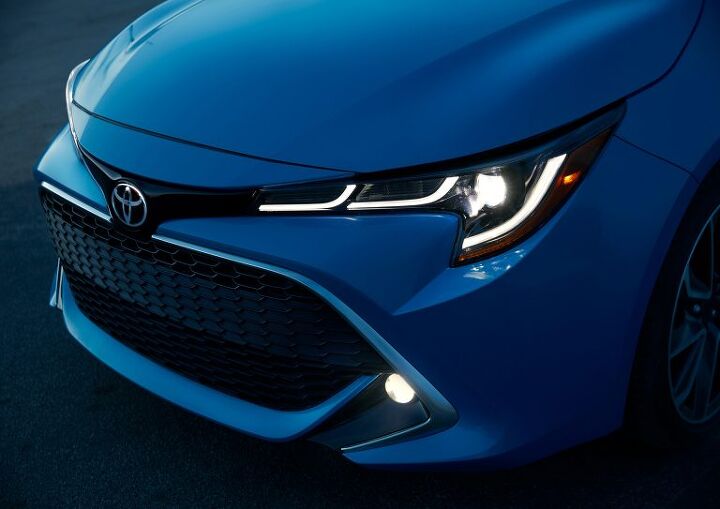

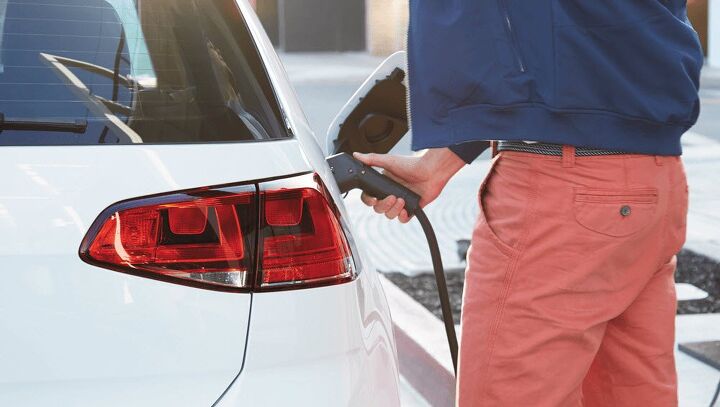
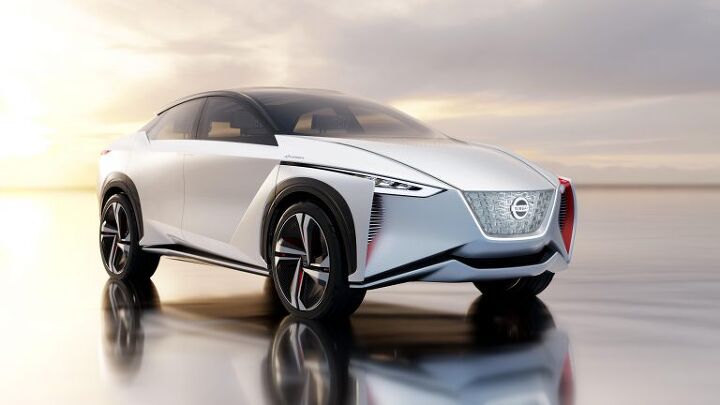
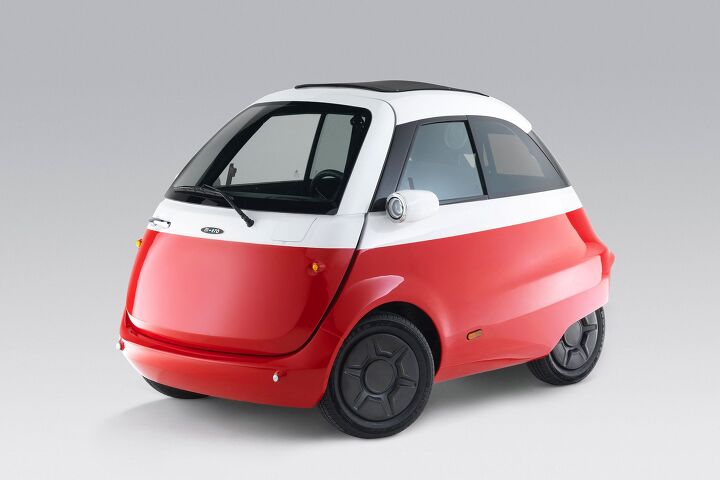

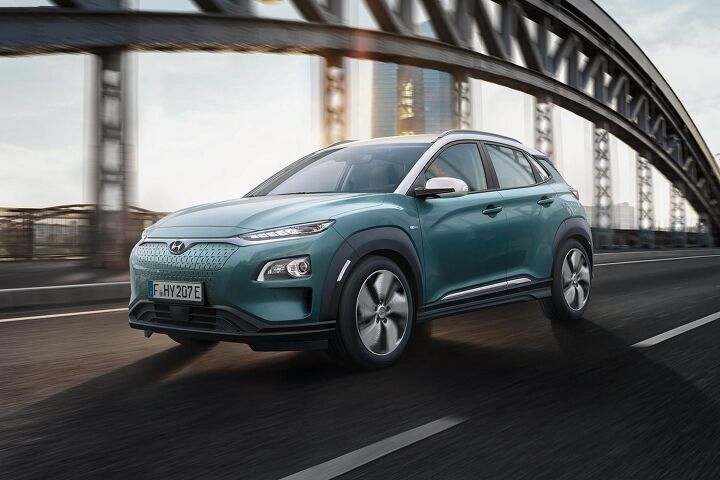
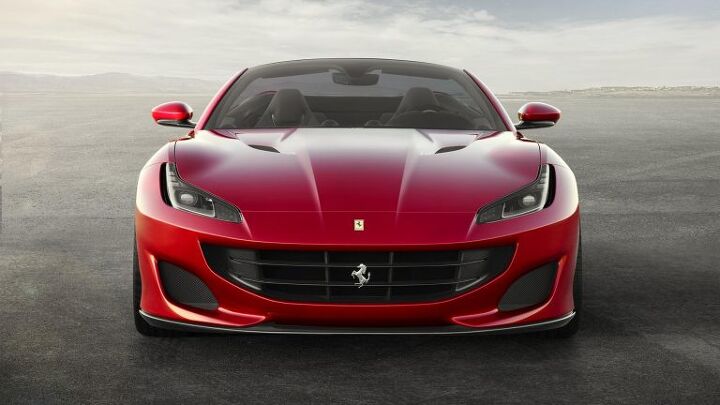
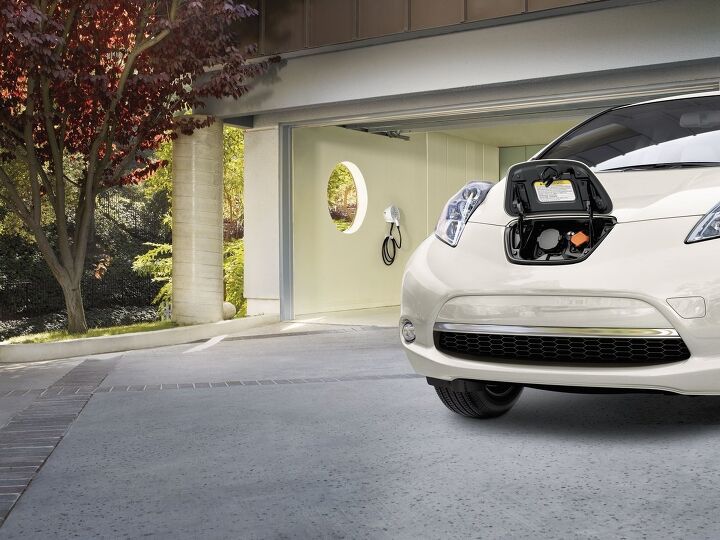


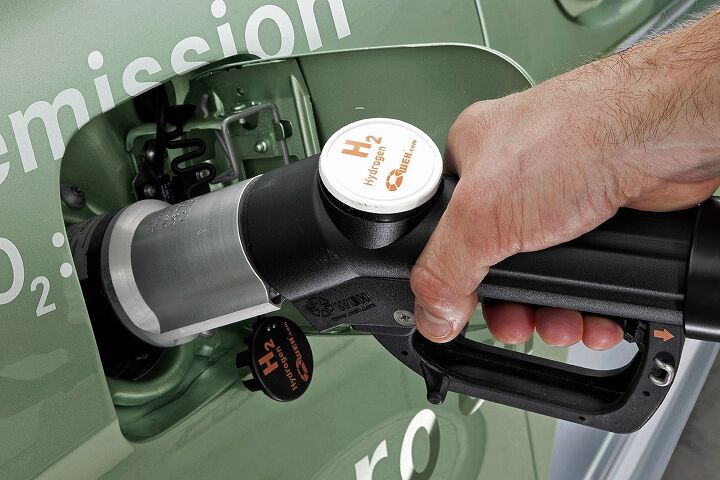

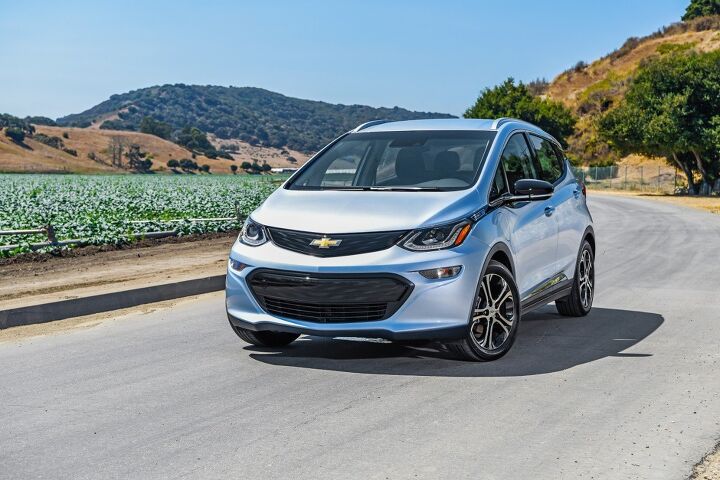












Recent Comments